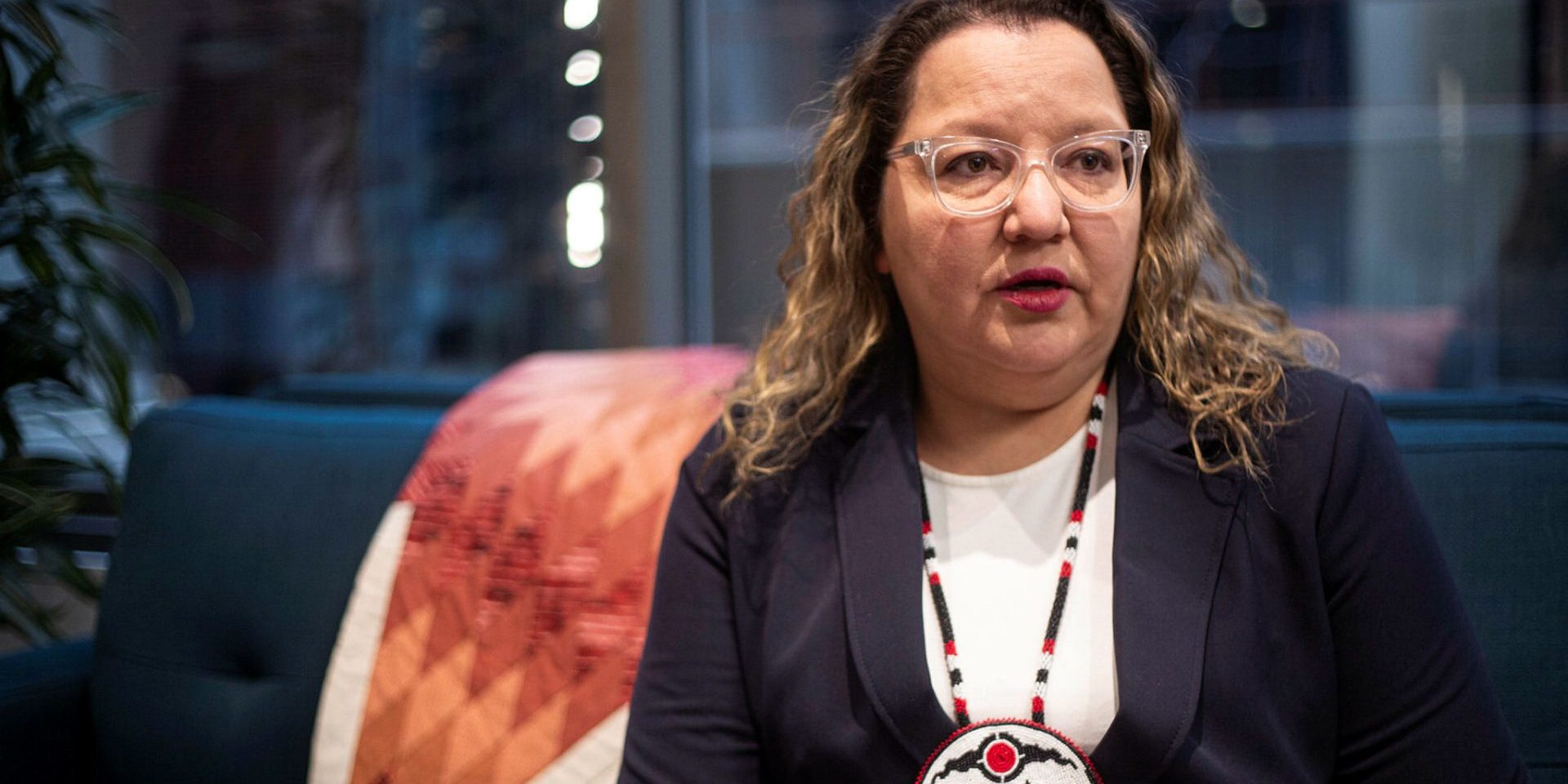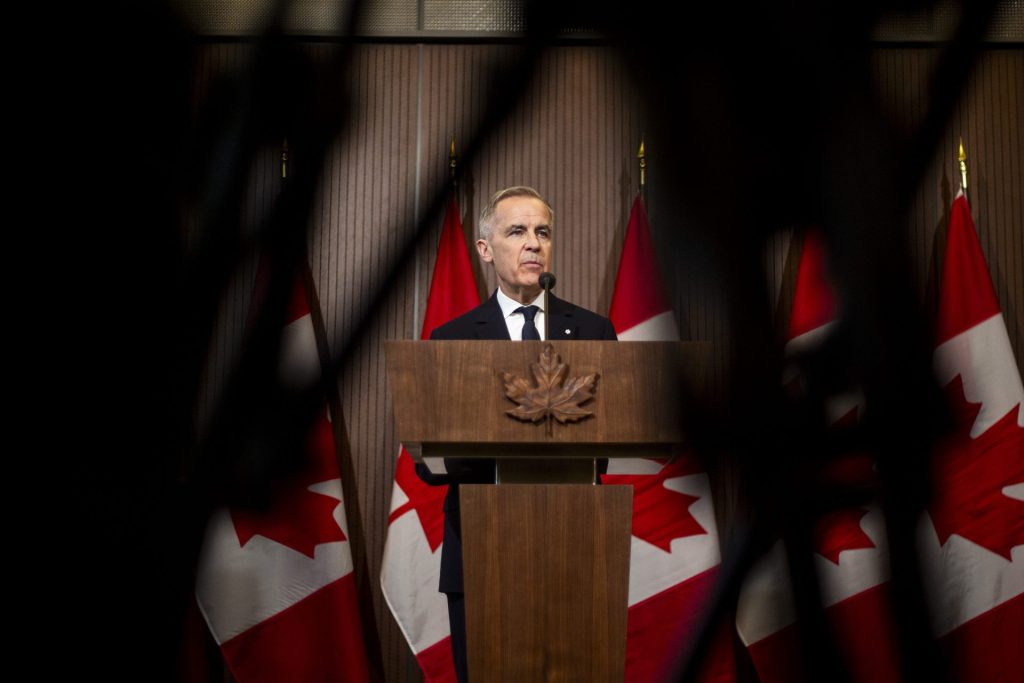AFN election priority report urges parties to make ‘clear, firm’ pledges to First Nations

The Assembly of First Nations’ new report outlining priorities for federal parties can help “set a course to strengthen the well-being of First Nations,” says AFN National Chief Cindy Woodhouse Nepinak, who is urging leaders to “make clear, firm, specific commitments responsive to First Nations priorities.”
Woodhouse Nepinak made the request in a new 28-page report—Prosperity for All—outlining clean drinking water, and improving the quality and quantity of housing and infrastructure in communities as among key concerns for First Nations.
Woodhouse Nepinak told The Hill Times that this fedeal election is coming “at a critical time in Canada’s history.”
“We have a long way to go in our country,” Woodhouse Nepinak said in an April 2 interview following the report’s release on April 1.
“The federal election represents an important opportunity for each federal party to describe how they intend to build a stronger mutually beneficial relationship with the Crown and First Nations,” she said. “Canada’s economic success and future stability, of course, depend on First Nations being full and equal partners in decision-making.”
The report by the national body representing First Nations covers four key “areas of action”: economic reconciliation, completing the TRC’s Calls to Action and National Inquiry into Missing and Murdered Indigenous Women and Girls Calls for Justice, well-being of First Nations children, and community safety and security.
It also called on parties to support First Nations’ jurisdiction over essential services like policing, and include First Nations governments in economic and regulatory plans.
Woodhouse Nepinak said the AFN will have more to say on the various platforms over the next couple weeks after watching how the leaders address the priority document.
“Are they going to incorporate what we’re telling them to do? We’ve given them our platform. I hope they incorporate it into their platforms.”
However, she did not hold back her opinion of Pierre Poilievre’s admiration for former prime minister John A. Macdonald, criticizing the Conservative leader for “uplifting a figure that has hurt First Nations people.”
“He’s [Macdonald] the one that inflicted residential schools and messed up a whole generation and did a lot of damage to the country of Canada,” she said.
The AFN national chief also urged Prime Minister Mark Carney to include First Nations when discussing Canada’s response to American tariffs.
“We need to have a seat at the table,” she said, noting Indigenous communities feel the impact of the levies, especially when it affects their trade with Native American businesses across the border.

The leaders of all major parties have promised to build more large-scale infrastructure across the country during this campaign. Woodhouse Nepinak said those big projects would not and should not advance without First Nations support.
“As we’ve seen time and time again … First Nations don’t want to be in court, but we’re always forced to go to court, and we keep winning,” she said, adding that the parties must consider Indigenous communities as “full and equal partners in decision-making.”
Woodhouse Nepinak welcomed what she described as strong representation of Indigenous candidates running on many party slates, including Billy Morin for the Conservatives, New Democrat Tania Cameron, and Liberals’ Rebecca Chartrand.
AFN issues list of swing ridings
Last week, the AFN also published a list of 36 ridings where it said Indigenous voters could swing the election outcome.
The ridings are spread across every province and territory save for Prince Edward Island and Nunavut. Every major party won at least two of them in the last election. The Liberals are defending 14 of the ridings, the Conservatives 13, the New Democrats seven, and the Bloc Québécois in two.
The list includes federal electoral districts where Indigenous people make up a bigger percentage of the eligible voters than the margin of victory in the last contest. For example, Indigenous voters make up 3.9 per cent of voters in Edmonton Centre, Alta., which Randy Boissonnault won for the Liberal Party by a margin of 1.3 per cent in 2021. Boissonnault is not seeking re-election.
“All parties should consider the role that First Nations priorities and electors will play in shaping the outcomes of the upcoming April 2025 election,” said an AFN news release that included the list.
The Hill Times
This piece first appeared in Politics This Morning, your go-to source for insider news, analysis, and updates on where all the key political players are that day. Get more insider coverage directly to your inbox from The Hill Times‘ editor Peter Mazereeuw and reporter Riddhi Kachhela in this subscriber-only daily newsletter. Sign up here.






 LICENSING
LICENSING PODCAST
PODCAST ALERTS
ALERTS













